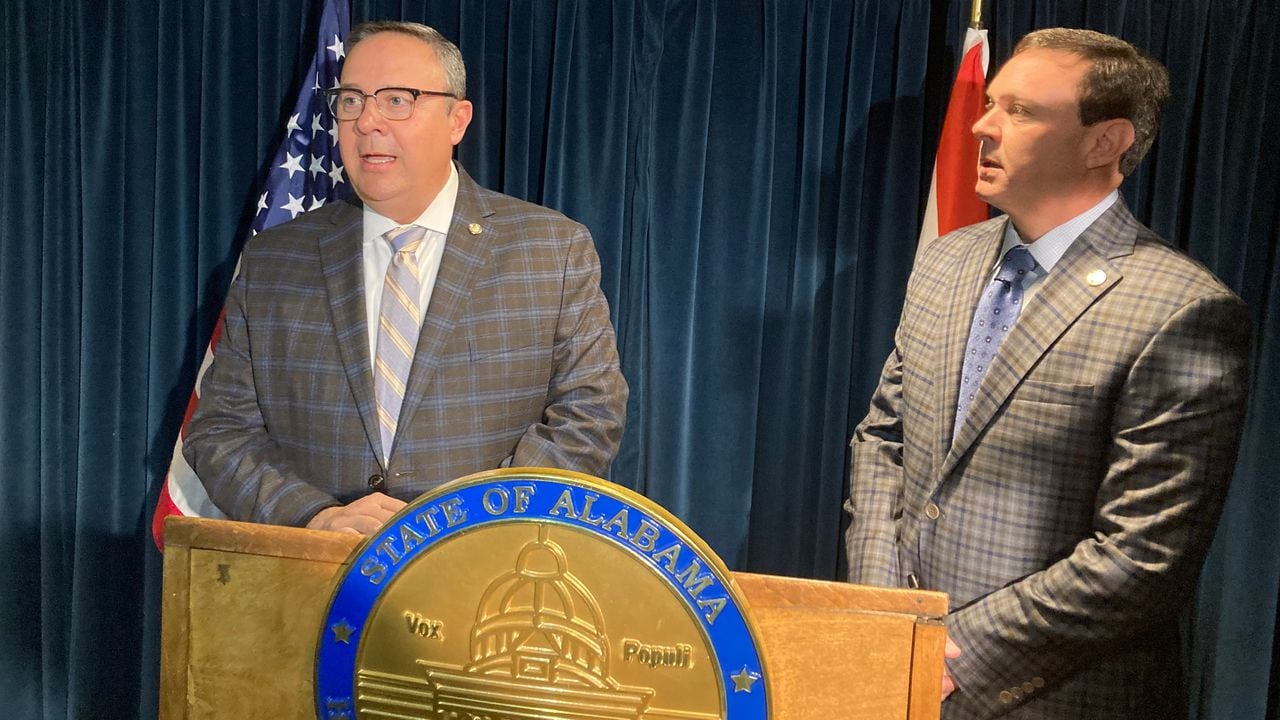Senator optimistic about outlook for lottery, casino plan
A plan to allow Alabama voters to decide whether to approve a lottery, casinos, and legal sports betting has moved to the state Senate after winning approval in the House of Representatives on Thursday.
The legislation is similar to plans the Senate has approved previously. The senator who will handle the legislation said that’s reason to be optimistic that the proposed constitutional amendment can win final approval and go to the voters in November.
“We passed this thing twice before, very similar in nature. And with 70 votes coming out of the House, I think most anybody would be giving good odds on this,” said Sen. Greg Albritton, R-Atmore.
The House passed the bill 70-32, clearing the requirement of 63 votes, or three-fifths of the House, for a constitutional amendment.
Three-fifths is also required in the 35-member Senate, or 21 votes. That would put it on the ballot for voters in November.
Alabama has not voted on a lottery bill since 1999. The last time a bill came close to reaching the voters was in 2021, when the similar plan passed by the Senate died in the House.
House Speaker Nathaniel Ledbetter, R-Rainsville, said he believes this year is different because he said the House, Senate, and Gov. Kay Ivey’s office have all been involved in developing the legislation.
This year’s proposal would authorize a lottery and create an Alabama Gaming Commission that would license and regulate up to seven casinos, as well as sports betting. The Legislative Services Agency estimated that the plan could generate about $900 million in net revenue for the state.
The legislation would allocate the revenue to broad categories, with money from the lottery going to education and money from the casinos and sports betting going to non-education programs such as health care and mental health care. Smaller shares would go to local governments in the counties where the casinos are located. The Legislature would appropriate the funds within those categories annually.
Advocates of the legislation said it would replace a patchwork of gambling laws in Alabama with a uniform system that would stop illegal operations and tax legal ones.
“This will be the state taking control of an industry that’s running wild throughout our society,” Albritton said. “Brick and mortar, behind the scenes, dark corners, online, on the phones, it’s all over the place. And we have suffered the ills of this but we are not making any attempt to control it, to regulate it, to ensure it’s being done properly and honestly and taxing it.”
Lawmakers have adjourned for the week and will return Tuesday. Albritton said he was not certain when the Senate would take up the legislation but said the Republican caucus, which holds 27 of the seats, will probably discuss it on Tuesday and decide how to proceed.
Last year, Ledbetter opposed the House taking up gambling legislation and said that was partly because of a large number of freshman members would be dealing with what has proven a complex issue for the first time. But he appointed an ad hoc committee chaired by Rep. Andy Whitt, R-Madison, to study the gambling issue that worked for more than a year to develop legislation. Whitt said he visited dozens of illegal gambling operations around the state.
“When we put them together, I didn’t know what they would find,” Ledbetter said. “And I didn’t expect Chairman Whitt to go to the extent he did, to go to these locations and take pictures of these illegal machines, illegal operations. You can go a block from where we’re standing and buy scratch-off tickets in Alabama. They’re not legal.
“This is very similar to what I would say alcohol was during prohibition. Because it was so out of control and so out of hand, they finally had to do something to legalize it so they could control it. I think that’s where we’re at today.”
Lawmakers who spoke in opposition to the bill on the House floor Thursday said it would lead to more gambling addiction that will devastate families. They said dollars spent on gambling would have otherwise gone to goods and services that build the economy and support households. But those arguments did not carry the day in the House.
Blackshear, from Phenix City, said it is past time for the issues to go to the ballot.
“I border the second largest city in the state of Georgia in Columbus,” Blackshear said. “And my district for a long time has had a lottery. That money has just gone to the state of Georgia.”
Ledbetter said he understood the reasons that some lawmakers voted against the plan and respected that. But he said he is hopeful the Senate will follow through and send the plan to the voters.
“The people of Alabama want to vote,” Ledbetter said. “Listen, if they vote for it, good. If they vote against it, that’s their choice. But at least they’ve got a voice and get a chance to do it.”
